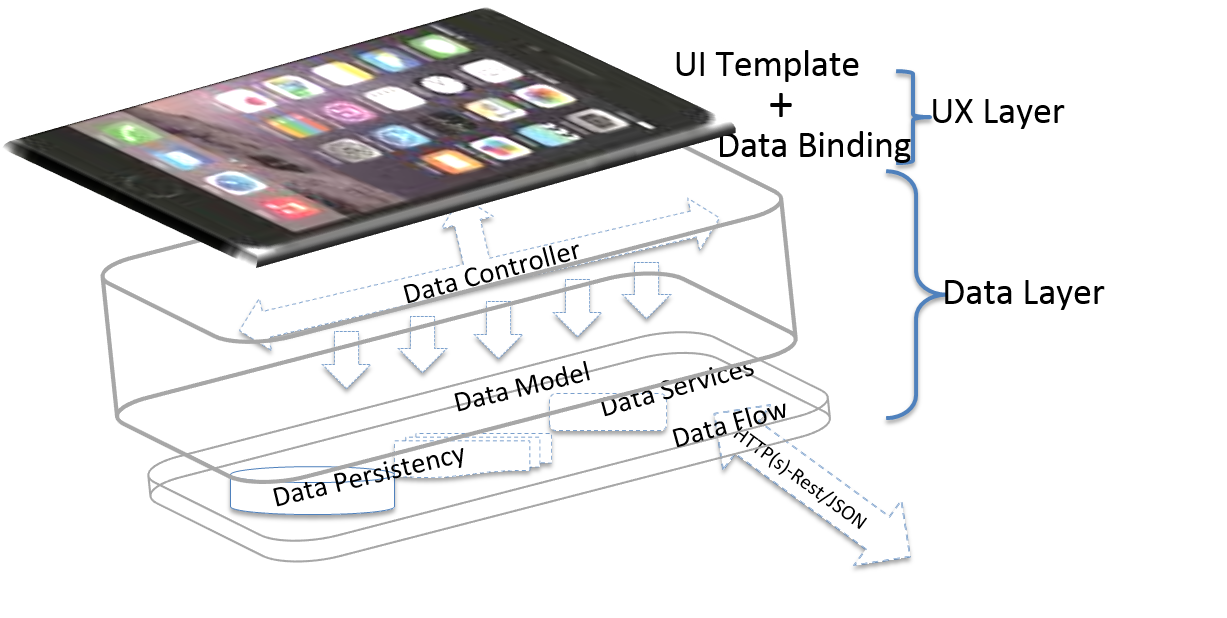Open source software has made inroads to most of the industry verticals, and enterprises are aggressively adopting it because of its flexibility, scalability, and significant cost saving capability. But these alone cannot be the deciding factors while deploying business-critical open source projects; instead measuring the expertise and track record of the vendor with a degree of assurance. To help you understand the dynamics and motivators in choosing an Open Source vendor, we have enlisted a few pointers.

Technology is the catalyst through that you are going to solve your business problem. So, it is crucial to get an inside view of an open source vendor’s technology capabilities. To know how efficient the vendor is in unlocking the potential of open source platform, following points can help you:
- Open source language expertise
- Framework-Expertise, for example in PHP Frameworks like Zend Framework, Symfony, Codeigniter, CakePHP and more
- Database – It entirely depends on your preference. Some of the databases that are used in Open Source application development are MySQL, DB2, PostgreSQL, MSSQL and Oracle
- System Administration: Knowledge of Server OS typically a Linux Box or Windows coupled with knowledge of Cloud Hosting (if required)
- Some specific projects also require extensive knowledge of Front End (UI) Development technology frameworks like JQuery, Prototype, EXT JS, and DOJO.
For better judgment, asking the right questions is important as it will help you to elicit answers in taking informed decisions. You may like to ask the following:
- How big the team is and its relevant experience across multiple products and platforms?
- Number of application architects or certified engineer on board?
- Number of engineers in the team who have worked with open source products that you use (for example, CRM Developer, Magento, Drupal, ProcessMaker to name a few)?
- Number of database experts in the team who have expertise in the database relevant to your project and their roles in development projects?
- Check internal training calendar to know the trainings conducted by the vendor?
- Ask about the induction process of an engineer as it will help you to know whether the vendor invests in training or not?
- Support – after Go Live, many companies get left without support as vendors pursue the next project. Ask your vendor about on-going support plans……..web apps never stop improving!
Domain & Ecosystem Expertise:
Undoubtedly, it’s the technology that enables you convert your business idea into a feasible solution, however, knowledge of a vendor about your industry vertical/domain and the associated Ecosystem technologies have also great significance in accelerating your project.
The combination of technology expertise and domain knowledge not only enables you render a higher quality service but ensures delivery on time. In addition, it is helpful to ask questions around Ecosystem, such as:
- What is company’s database expertise in migrating legacy systems, database Administration, Security, Performance Tuning, Replication, Backup, Fault-Tolerance and designing and developing a customized database?
- What are Linux / Server Management services provided by the company like monitoring, support, backups and more?
- Cloud /SaaS and Hosting Expertise:
Project and Quality Management:
A proven Project Methodology and Quality Management process of a vendor helps make your life much easier during the project life-cycle. So, ask about the quality management practices followed by the company and check if the vendor has a Certified QA team. (There are number of QA related certifications.)
The following factors are the key for a coherent project management strategy:
- On-line Project Management tools utilized for all parties
- Project tracking plan and methodology
- Project status reporting frequency, structure and process
- Change Management plan & tracking
- Issues Management process & tracking plan
- Risk Management plan
- Check which test phases are covered by the methodology like ‘Unit Testing’, ‘System Testing’, ‘Integration Testing’, and ‘User Acceptance Testing’?
- Software Configuration Management
Industry-standard SLAs and Security:
Inspect the vendor’s SLA provision and existing security standards to determine its boundary of responsibility. Does the SLA define?
- Special cost issues during SDLC
- Compliance format and regulatory information (if required)
- Formalization of your project requirements, specification and areas to be supported
- Accountability for non-performance
- Confidentiality and protection of your business-critical information and your data
Besides that, service providers also formalize SLA as per client’s different needs.
Documentation:
Most applications struggle just because of pool documentation. Getting an up-to-date, well-written and user-friendly document can help you a lot while using your application. So, check the vendor’s resources who build technical documentation. It is always better when it is written at development end. This will save your spending to external documentation service provider, and you will get complete peace of mind as it is documented by the team who has actually built the software/application.
Partnerships and open source “product” resources:
You should always take the effort to ask how the service provider is associated with the open source communities and Open Source Products/Packages for which they claim expertise or support. Any vendor who boasts of its extensive experience in OSSCube will surely have some kind of close collaboration with Open Source technology innovators (such as Diamond partnership or Gold partnership). The partnership not only validates a vendor expertise but also enables them to access resources and other support from different industry experts.
Training:
Ask for training program organized by the vendor. Also, do they also provide custom training to help you or your staff better understand the software you are developing?
Client references:
Who can better access the level of capabilities a service provider possesses? Of course, the clients who are already working with the open source service provider. So, get some references that are associated with the service provider. Longer contracts show the quality and strength of the vendor in open source maintenance and support. But this should not always be a determinant.
Business and Legal Strength:
Last but not the least, find out how the vendor approaches collaboration & legal issues. Some of the relevant questions that can be asked at this juncture are:
- How big is your local presence? Will the vendor be able to serve you in your time zone?
- Review the contract, NDA which are enforceable in your country, is the vendor incorporated there?
- Does the vendor have any kind of liability insurances?
- When was service provider’s company incorporated?
- Is the company financially stable?
As you have read most factors aren’t without reasons, and if you choose your open source vendor on the basis of above factors, the prospects of better accessing the vendor’s capabilities and strengths is always bright. And ultimately, you’ll able to find a skilled, specialized expertise for your job. If you have any critical question to ask or want to extend this discussion, we always welcome your questions and comments.

Balaji has spent over 18 years in the IT Services Industry. With an experience encompassing Services and Product Marketing, he has successfully managed globally distributed Marketing and Product teams. He’s an analytical marketer with strong understanding and experience across marketing strategy, demand generation, field marketing, technology partner marketing, account based marketing, digital marketing, event management, analysis and third party relationship, PR/Media, people management, etc.







